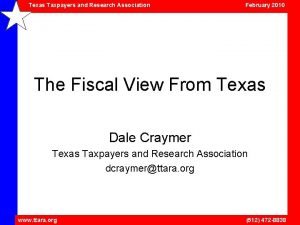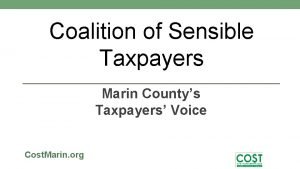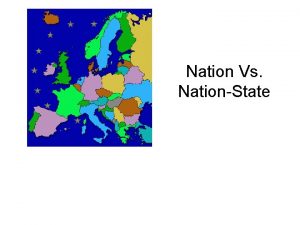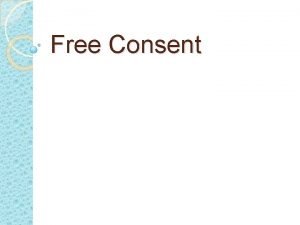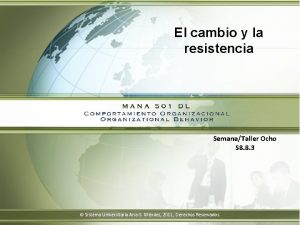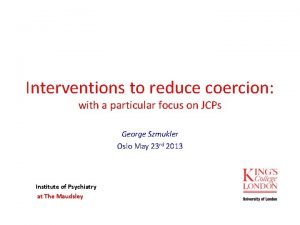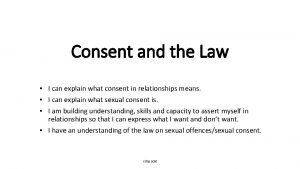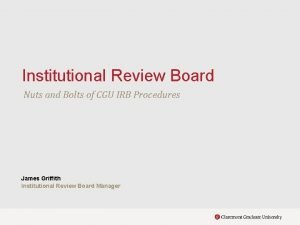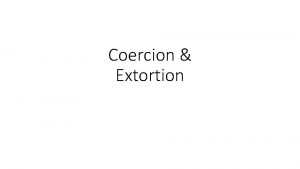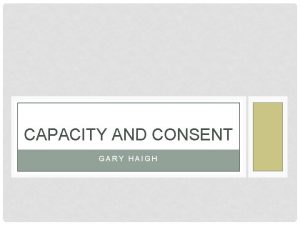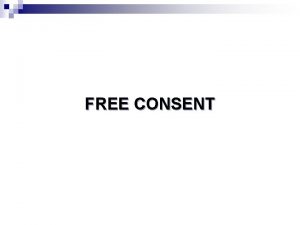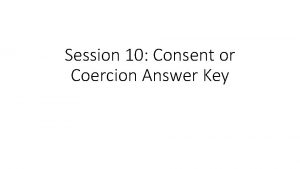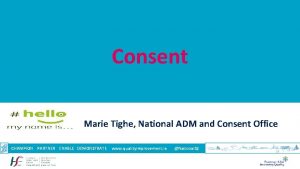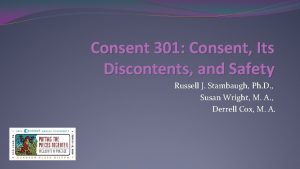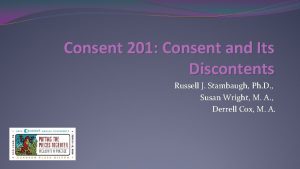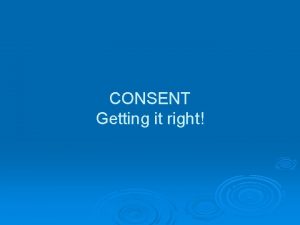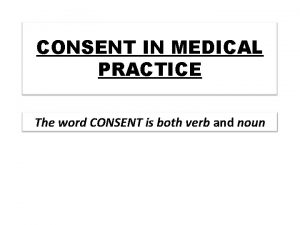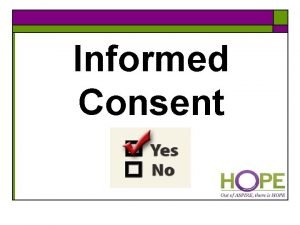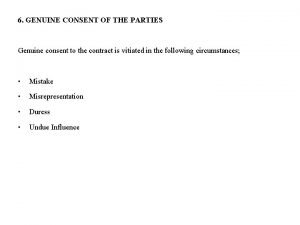A Nation of Taxpayers Consent Coercion and the




















- Slides: 20

A Nation of Taxpayers Consent, Coercion, and the Modern U. S. Tax State Joseph J. Thorndike Tax Analysts Falls Church, VA

What Do We Know About the History of Taxpaying in the United States?

The taxpayer’s “lived experience”

“The United States has a system of taxation by confession. That a people so numerous, scattered and individualistic annually assesses itself with a tax liability, often in highly burdensome amounts, is a reassuring sign of the stability and vitality of our system of selfgovernment. --Justice Robert Jackson, United States v. Kahriger, 1953

The Conundrum For a nation borne of a tax revolt, Americans are remarkably good about paying their taxes

But Why Do We Pay? v Jackson’s notion of “confession” is helpful v Tax compliance— and by extension, tax consent—is a function of both voluntarism and coercion v Sometimes in tension, but usually complementary

The Project • Taxation in the crucible: critical periods of consent creation • Evaluates the durability of consent

Coercion and Voluntarism v Argues that consent was a function of both coercion and voluntarism v Focuses on administration but does not ignore policy v Accommodates blurred lines, interactions, and contradictions v Concludes that durable consent depended heavily on blending coercion with taxpayer assistance

Voluntarism: Civil War v Policy design v Income tax designed to bolster fairness v Perceptions of fairness considered a prerequisite for consent (and therefore compliance) v Decentralization Ways and Means Chair Thaddeus Stevens, R-Pa. v Numerous collection districts v Local face on a federal tax v Patronage

Voluntarism: Civil War v Patriotism v Chase: “The most sacred duty of the American people at this moment requires the consecration of all their energies and all their resources to the reestablishment of the Union on the permanent foundations of justice and freedom. ”

Voluntarism: Civil War George Boutwell, first Commissioner of Internal Revenue v “Public anxiety in regard to the construction of the law induced a large amount of correspondence” v At first, the commissioner answered all such letters personally v Boutwell’s first principle: “to levy a tax in those cases only which are clearly provided for by the statute, and, consequently, whenever a reasonable doubt exists, to rule against the government and in favor of the individual”

Coercion: Civil War v An Army of Officials v Federal rather than state v Sweeping powers v default assessments v arrest and imprisonment Taxpayers at the Assessor's Office v bounties v private collectors

Coercion: Civil War v Public disclosure v v Commissioner: "The object of the law seems to have been to afford every tax-payer an opportunity of ascertaining what returns his neighbors have made. He is interested in these returns, because the burden of the national duties is a common one, and every person should be required to pay his due proportion of it. Withholding

Transience of Civil War Consent v Coercion cut two ways, both against the income tax v Too weak to prevent evasion v Too strong to tolerate for law-abiding taxpayers v Voluntarism largely successful but inadequate to maintain consent v Patriotism was an effective rhetorical exhortation v Decent administrative support for taxpayers v Pocketbook complaints merged with coercion complaints to undermine the tax; declining revenue needs created the opportunity

Voluntarism: World War II v v v Policy design: fairness as a tool of consent v Soaking the rich justified taxing the middle class v No sales tax Patriotism: sacrifice v Mass media made propaganda more efficient. v Familiar calls to sacrifice. Information, taxpayer support

Voluntarism: World War II

Coercion: World War II v Coercion requires either a small scale (Civil War tax) or impressive administrative capacity v Threats were extant but underdeveloped during the war v Administrative weakness made such talk dangerous v Treas. Sec. : “Suppose we have to go out and try to arrest 5 million people? ” v Postwar, a different story v Absent wartime exhortation, BIR turned to threats

Coercion: World War II • Withholding changed the equation • Coercion with a velvet glove

Durability of Consent v WWII tax proved durable v Progressivity and perceptions of fairness were key v Mass tax, by virtue of its embeddedness, was tenacious v Increasingly, elements of the postwar state were delivered through the tax system v Withholding was crucial

Complexity and Consent v Complexity: Everyone’s second highest priority for tax reform. v v Really? Taxpayers? Withholding was obviously coercive v But conceived as benefit to both government AND taxpayers v Facilitating voluntarism v Limiting possibilities of catastrophic error v Policymakers worried that taxpayers would withdraw consent from a system they found confusing v Fear is the enemy of consent. Complexity breeds fear, especially when combined with coercive forms of enforcement.
 Texas taxpayers and research association
Texas taxpayers and research association Coalition of sensible taxpayers
Coalition of sensible taxpayers State vs nation
State vs nation Nation vs state
Nation vs state Nation vs state
Nation vs state Coerced
Coerced Elementos del estado
Elementos del estado Cuantos cuadrados hay en la imagen
Cuantos cuadrados hay en la imagen Guerra civil
Guerra civil Coercion example
Coercion example Sexual coercion meaning
Sexual coercion meaning Tactica de coercion
Tactica de coercion Differential coercion theory
Differential coercion theory Coercion in a sentence
Coercion in a sentence Coercion
Coercion 22power dot com
22power dot com Consent and the law
Consent and the law Ey2 declaration and consent form
Ey2 declaration and consent form Cgu irb
Cgu irb Types of consent
Types of consent Positive intervention consent
Positive intervention consent
